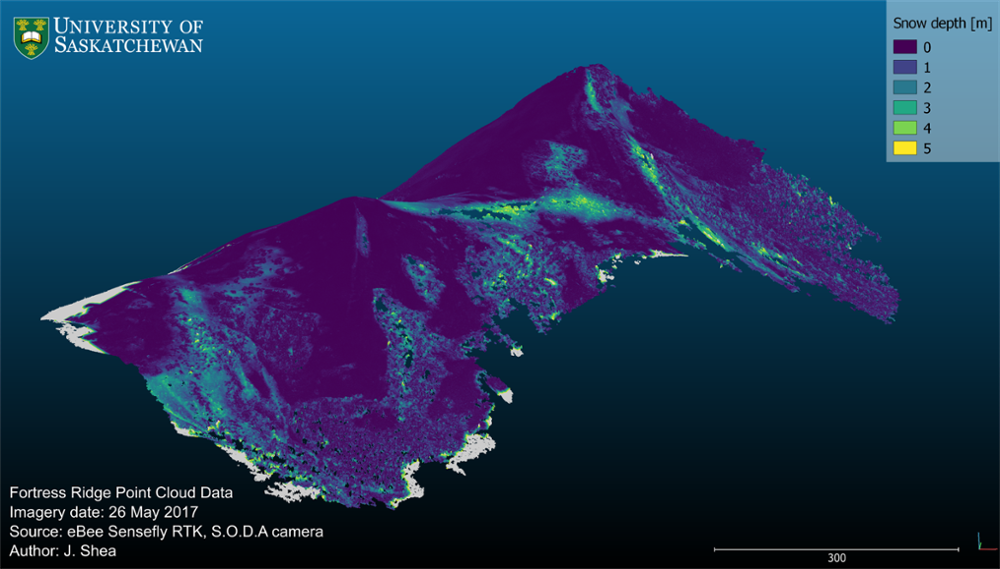CFI funds high-tech tools at U of S for cancer, water and food security research
Five researchers at the University of Saskatchewan (U of S) have been awarded a total of $625,000 by the Canada Foundation for Innovation (CFI) for state-of-the-art equipment that advances leading-edge work in precision medicine, water research and swine welfare.
“This investment in sophisticated technology at the U of S will enable our talented researchers to have a global impact with ground-breaking research in the key areas of food security and water security and health solutions at the animal-human-environment interface,” said U of S Vice-President Research Karen Chad.
A husband-and-wife team of Petros and Silvana Papagerakis, recruited from the University of Michigan in 2016 to help the U of S advance its medical research program, was awarded a total of $300,000 toward the purchase of two pieces of specialized equipment for developing precision medicine (formerly known as personalized medicine).
One machine separates and isolates, at the single-cell level, biological samples, and the second analyzes the cells at the RNA/DNA-level to see whether there are mutations or misexpressions, thus providing an in-depth analysis of the cell make-up of a specimen. For instance, 80 per cent of cells could be malignant, 10 per cent pre-malignant and 10 per cent benign. Researchers can then add different drugs to see how a patient would respond to treatment at the single-cell level.
“More and more we realize that people have particularities that need different treatment. We can hopefully adapt drug therapies to kill every single cell in the tumor of a patient, for example, and get much less relapse,” said Petros Papagerakis, associate dean of research and associate professor in the U of S College of Dentistry.
Silvana Papagerakis, associate professor of surgery and faculty member in the cancer research cluster at the College of Medicine, researches how the body’s circadian rhythm (known commonly as the “body clock”) is disrupted in cancer patients, and how that correlates with cancer metastasis and aggressiveness.
Research has shown that disruptions to the circadian rhythm, which regulates such things as the body’s gene activity, as well as physiological and biochemical processes, are linked to health problems.
“My specialty is about autoimmune diseases where the circadian clock is actually suppressed, which is correlated with the destruction of organs and impaired regulation of the immune system,” said Petros Papagerakis.
Potential use of the equipment extends to research in vaccine and drug development, and animal health, on which they will work in collaboration with the Western College of Veterinary Medicine and other colleges.

Canada Research Chair John Pomeroy, director of Global Water Futures (GWF), and Canada Excellence Research Chair Laureate Howard Wheater, were awarded $200,000 toward the purchase of a custom drone for the newly established Smart Water Systems Laboratory.
The laboratory was established to help mitigate the impacts of climate change by improving the capability to predict water futures and assess water-related risks such as floods, drought, fires and pollution. The laboratory is developing new sensors to measure snowpacks, ice sheets, open water, flooding, streamflow, soil moisture, wetlands, vegetation, and algal growth.
The new drone, equipped with sophisticated sensors, is capable of flying below clouds for more than eight hours and covering hundreds of square kilometres, enabling water scientists to observe vast areas of remote cold regions to detect large-scale hydrological changes in a relatively short time.
Yolande Seddon, assistant professor at the Western College of Veterinary Medicine at the U of S and a specialist in animal behaviour and welfare, was awarded $125,000 toward equipment and software that directly support her research on swine welfare.
Seddon, working with 14 industry partners, recently was awarded a Natural Sciences and Engineering Research Council of Canada (NSERC) Industrial Research Chair. She undertakes research that helps place Canada at the forefront of progressive swine management by accommodating animal welfare, and supporting sustainable and ethical food production.
The CFI grant will go toward a suite of automated feeders for piglets and growing pigs, an automated water monitoring system for use in a commercial barn, and software that analyzes swine behaviour to answer a variety of key research questions related to animal welfare.
The CFI grants for all three projects are expected to be supplemented with contributions from government and other public and private sources.